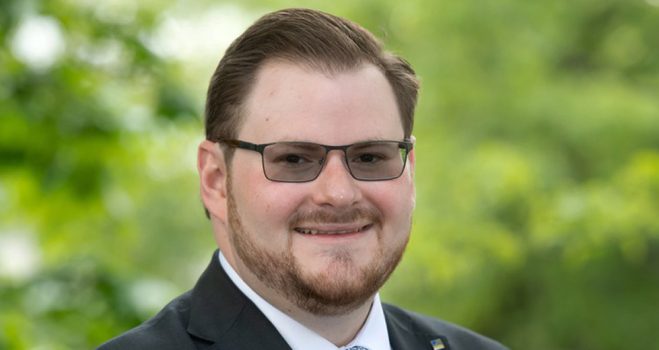David Brandon Smith, a double graduate of the World Communion of Reformed Churches’ (WCRC) Global Institute of Theology (GIT) in 2017 and 2022, has seen his professional and personal life dramatically transformed through the program. Now a researcher in church history at the University of Bonn’s Center for Dependency and Slavery Studies (BCDSS), Smith’s journey from seminary student to academic theologian and committed ecumenist is one of inspiration, persistence, and deep personal growth.
Reflecting on his first encounter with the WCRC, Smith recalls a pivotal moment during his final year at seminary when he took a course on “Ecumenism in Light of World Christianity.” A project on the WCRC piqued his interest, igniting a desire to delve into the wider world of ecumenism beyond his local church context. A timely suggestion from his professor led him to apply for the GIT program, a decision that would shape the course of his career and spiritual journey.
In 2017, Smith attended his first GIT in Wuppertal, Germany. At the time, he was already set to take on a pastoral position in the United States, yet his GIT experience drastically reshaped how he would approach that role. “The GIT provided me with the skills I needed to reframe the ecumenical work of the ministry,” he says, noting how the program opened his eyes to the possibilities of developing new ecumenical and interfaith partnerships at the local level. This transformative experience marked a turning point, steering him toward further graduate studies in ecumenics and the history of Christianity.
By the time he returned to the GIT in 2022, Smith’s life had changed considerably. He had married, moved to Germany, and was navigating the challenges of learning a new language, writing a doctoral dissertation, and teaching, all while trying to balance personal and professional commitments. Exhausted and questioning his future in the ecumenical field, Smith sought a renewed sense of purpose. And the GIT did not disappoint. “Returning to the GIT reminded me of how powerful and transformative it can be to come together from around the world,” Smith says. It rekindled his passion for ecumenical work, reminding him why he had chosen this path in the first place.
One of the key takeaways from Smith’s GIT experience was not just the theological knowledge gained, but the invaluable “soft skills” he developed through dialogue and engagement with peers from diverse backgrounds. Known for his blunt communication style, honed in the direct environment of German academia, Smith quickly realized that ecumenical dialogue required a different approach—one that emphasized listening, patience, and humility. The GIT’s structure fostered these skills, creating a space for meaningful conversation, even in the face of disagreement. This, he notes, is crucial for the future of ecumenism, where dialogue often occurs across vast theological and cultural divides.
The GIT program, according to Smith, is intentionally designed to encourage participants to expand their horizons. Whether through carefully crafted group assignments, ecumenical excursions, or informal conversations between events, every aspect of the program contributes to personal and spiritual growth. Smith reflects that these moments of connection—often seemingly accidental—were pivotal in shaping his perspective and approach to ministry. “It’s these formative experiences that stay with you,” he explains.
For those considering the GIT program, Smith has a clear message: “DO IT!” He acknowledges that, while there are many ecumenical programs out there, the GIT stands out for its ability to combine rigorous theological engagement with personal and spiritual transformation. Whether participants choose to pursue careers in ecumenism, academia, or pastoral ministry, the program offers a unique opportunity to learn, grow, and build lasting connections.
Summing up his experience in one word, Smith calls the GIT “transformative.” It has not only shaped his career but also reignited his commitment to the ecumenical movement during times of doubt and fatigue. Looking ahead, Smith remains deeply committed to his work, both as an academic and as a minister within the Reformed tradition, with the lessons of the GIT continuing to guide his journey.
For anyone on the fence about joining the GIT, Smith offers this final thought: “You’ll not only gain valuable skills and experiences but will also form friendships and connections that will last for years to come.”


